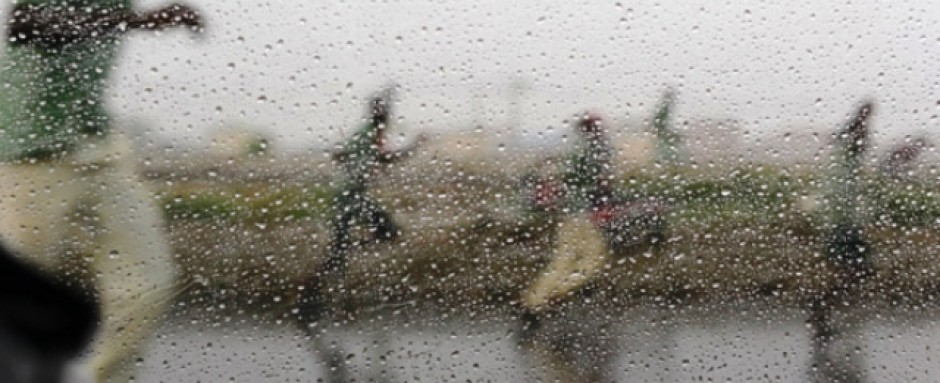 Translated by Annie McDermott and Sophie Hughes.
Translated by Annie McDermott and Sophie Hughes.
I n February of ’74 I travelled to Paris with the anachronistic intention of becoming a writer from the 1920s, ‘lost generation’ style. That was my, shall we say, unusual aim on moving there, but even as a young man I couldn’t fail to notice, as I wandered the streets, that Paris was absorbed in its latest revolutions, and this filled me with a vast, monumental laziness, an overwhelming lethargy at the mere thought of having to become a writer there, let alone a lion hunter à la Hemingway.
To hell with everything, especially my aspirations, I said to myself one evening as I crossed the Pont Neuf. There must be some way of escaping this fate, I’d been thinking non-stop throughout the whole of that day. In the end, I turned down a dimly lit street and embarked on a life of crime that somehow plunged me back into an adolescent mindset that I thought I’d put behind me: the classic dispirited state of a young man whose great poems would revolve around ‘solitude’ and ‘his weatherworn soul’, were he not too busy selling drugs to write them.
In Paris, at any rate, I wasn’t so foolish as to be taken in by the total void, which had already wrecked my first youth, in Barcelona. Instead, I succumbed to a kind of controlled meaninglessness, bordering almost on pretence, and did little else but explore, in considerable depth, and from top to bottom, the seedy side of Paris, the diabolical side, that glorious city described in The Other Paris by Luc Sante (neighbourhoods teeming with flâneurs, Apaches, chanson stars, clochards, brave revolutionaries and street artists), the Paris of outcasts, the Paris of anti-Franco exiles with their well-organised drug network, the Paris of washed-up has-beens, the Paris of dizzying social frenzy.
A Paris that, many years later, would be the setting for my account of those days spent dealing hashish, marijuana and cocaine, during which I failed to devote a single minute to writing, and was overcome, what’s more, by a sudden lack of interest in culture more generally; a lack of interest that cost me dearly in the long run and was even reflected in the oafish title I gave to my account of those turbulent times: A Garage of One’s Own.
Paris, for me, during that first two-year stay, was simply a place where I sold drugs and where, for a brief three-month period that went by in a flash, I was addicted to lysergic acid, LSD, which led me to understand that what we call ‘reality’ is not an exact science but a pact between a great many people, a great many co-conspirators, who might one day decide, for example, that the Avenida Diagonal in your hometown is a tree-lined boulevard, when in fact, after a dose of acid, you can see quite plainly that it’s a zoo rife with beasts and tropical birds, all with a life of their own and running amok, some even swinging in the treetops.
During that first two-year stay, my Parisian world was limited to a modest patch ruled by small-time dealers, and the odd party full of depressed Spanish exiles; lousy parties, albeit with plenty of red wine, and about which all I remember is the habit I developed of saying goodbye to each and every one of my pseudo-friends and acquaintances with the words:
‘Did you know I’ve stopped writing?’
At which point someone would invariably jump in and correct me:
‘You never wrote in the first place!’
And it was true, I didn’t write, or rather I hadn’t since I published my first and only book, the exercise in style I completed in some barracks in the North African city of Melilla. It was titled Nepal and consisted of a veiled take-down of the bourgeois family, along with an explanation of how I intended – blessed innocence, I had yet to set foot in Paris, or venture down that dimly lit street – to remain utterly unchanged, identical to my current self for as long as I lived; in other words, to remain in thrall to the wholesome hippie tendencies I had found so seductive until some countercultural, libertarian, pacifist scoundrels took me to work a sugar-beet harvest and everything suddenly changed.
No one in Paris knew, nor was there any reason why they should, that I had written and published a book on my return from Africa, a little novel that passed itself off as having been written in Kathmandu and whose prose was so experimental that the critique of the bourgeois family went entirely unnoticed. I’d never told anyone about my days in Melilla spent playing at feeling like Gary Cooper in Von Sternberg’s Morocco (though I lacked all the requisites to pull it off – Marlene Dietrich, for starters), and this gave me, among other things, the chance to try my hand at being someone else, at reinventing myself, though in the end I always found that, much as I longed to be many different people and to have been born in many different places, my likeness to myself was just too strong, and not a day went by when I wasn’t reminded that the risk of trying to be someone else is precisely that we end up resembling ourselves.
Enrique Vila-Matas
Translated by Sophie Hughes and Annie McDermott
Translation © 2023 by Sophie Hughes and Annie McDermott. Montevideo is forthcoming in 2024 from Dalkey Archive Press.
From MONTEVIDEO
by Enrique Vila-Matas
Published by Dalkey Archive Press (2024)
Translated by Annie McDermott and Sophie Hughes
